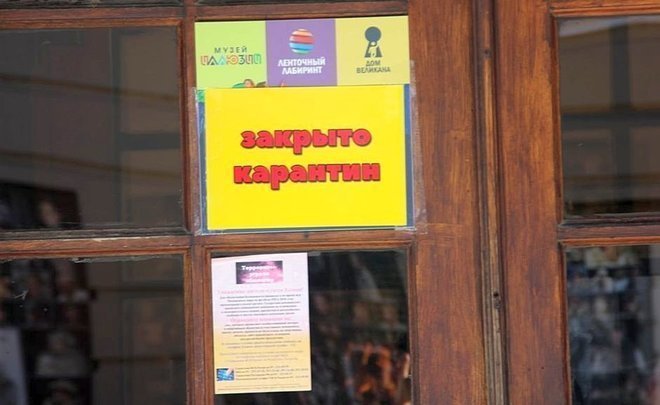“Everything is right, but it hurts”: entrepreneurs about strict self-isolation in Tatarstan
Entrepreneurs are complaining about losses, but they recognize that general self-isolation is a necessary and timely measure

Tatarstan entrepreneurs are preparing for a long downtime after declaring general self-isolation in the republic from March 30. The measures are quite reasonable and, perhaps, with an eye on Italy, they are the only correct solution — the business community recognizes. However, the tools of state support adopted today — tax deferrals, reduction of insurance premiums for salaries above the minimum wage, credit holidays, according to entrepreneurs interviewed by Realnoe Vremya, rather plunge into limbo than really help.
“Stay home, please!”
Tatarstan has taken steps to combat coronavirus following the scenario of Moscow and at the direction of Prime Minister Mikhail Mishustin — strict and general regime of self-isolation has been introduced in the republic since 30 March. In the next week and up to new government decisions, Tatarstan residents will leave their homes only to the nearest supermarket or pharmacy, to take out garbage and walk the dog, and not further than 100 metres from their house. Serious tightening of anti-epidemic measures was announced on March 30 by the head of the operational staff for the prevention of the spread of coronavirus, Deputy Prime Minister of the Republic of Tatarstan Leyla Fazleeva.
An exception will be made only for those who need emergency medical care, for employees of hospitals, pharmacies, non-stop production and institutions that are separately prescribed by the decree of the head of the Russian government. But they will also need to get a certificate from the employer on a special form that will confirm the need to leave the house.
In general, for the next week, the cities of the republic are waiting for “complete paralysis”: parks and all public spaces have joined the already closed shopping centres, as well as hairdressers and restaurants. Public transport will continue to run, transporting those who have to go to work around the city, but at much longer intervals and there will be far fewer cars on the route. From April 1, bus services between the regions of the republic will be completely cancelled. Trains will run only in the morning and evening. Taxi services can continue to operate, but their customers will be subject to the same quarantine rules — without a certificate, movement around the city is prohibited, including in private cars.
There are no detailed regulations on the functioning of the “general quarantine” at the moment so far — the Tatarstan government has not yet decided on the systems and formats of control over the population of the republic, has not approved the form of certificates, which will allow people to navigate through the city, the exact end date of the quarantine is unknown. According to Leyla Fazleeva, in the next days, all the “details” and more detailed regulations of the regime will be announced to the population.
For now, we only know that teams of employees of the ministry of internal affairs, National Guard of Russia and Rospotrebnadzor will control the compliance with the quarantine measures. To date, fines for non-compliance with the quarantine, according to the 6.3 Administrative Code, can range from 100 to 500 rubles, but, as stressed by the head of Rospotrebnadzor of the Republic of Tatarstan, Marina Patyashina, in the coming days, by the decision of the Russian government, they will increase multiples.
Tatarstan
